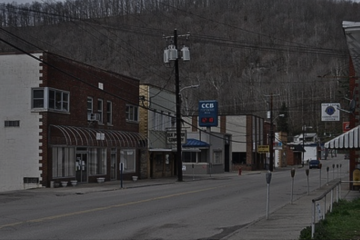Kanawha County judge rejects lawsuit filed by unemployed WV workers
by Erin Beck
Charleston — Kanawha County Circuit Judge Maryclaire Akers ruled against two women who sued Workforce West Virginia after state officials terminated pandemic-related enhanced unemployment benefits.
Unemployed workers had hoped to find out Monday that they were set to receive benefits they lost in June, when Governor Jim Justice ended those benefits early.
They were still eligible for those federal benefits, which are provided at no cost to the state, under federal law until Sept. 6. But Justice ended them June 19, saying that the enhanced benefits were making it difficult for employers to hire.
Congress, through the CARES Act, had given workers an extra $300 per week, and made some workers, such as gig workers and independent contractors, newly eligible for unemployment benefits..
Last month, Rebecca Urie, of Charleston, and Kimberly Griffith, of South Charleston, filed lawsuits in Kanawha County against Scott Adkins, Commissioner of Workforce West Virginia.
Represented by the nonprofit legal firm Mountain State Justice, they had pointed to West Virginia code 21A-2-16, arguing that it requires the Workforce West Virginia Commissioner to secure “all advantages available” for unemployed workers.
Last week, Akers denied their request for injunctive relief “to require the immediate continued administration” of benefits.” She said injunctive relief was not an appropriate legal remedy because the benefits had already stopped — in other words, she couldn’t require Adkins to “continue” something that had already ended.
During another hearing, at the judicial annex in Charleston Monday, she also rejected the plaintiffs’ request for a writ of mandamus, an extraordinary legal remedy plaintiffs asked her to use to require the commissioner to perform his duty to secure “all advantages available” for unemployed workers.
Workers v. Employers
At one point during the hearing, Akers said since the law references all “citizens,” not unemployed workers specifically, the law could be interpreted to mean the commissioner also has a duty to secure all advantages available for business owners, who are also citizens.
Bren Pomponio, litigation director for Mountain State Justice, responded that unemployment benefits do benefit all citizens, because unemployed workers spending that money boosts the economy.
He also argued that the law is specifically focused on “the harsh consequences of unemployment” for workers who lost jobs through no fault of their own,and that the section cited is titled “Federal-State Cooperation.”
“The Legislature wanted the commissioner to get these federal dollars,” he said.
The relevant section of law states:
“In the administration of this chapter the commissioner shall cooperate with the United States department of labor to the fullest extent consistent with the provisions of this chapter, and shall take such action through the adoption of appropriate rules, regulations, administrative methods and standards, as may be necessary to secure to this state and its citizens all advantages available under the provisions of the ‘Social Security Act’ which relate to unemployment compensation, the ‘Federal Unemployment Tax Act,’ the ‘Wagner-Peyser Act,’ and the ‘Federal-State Extended Unemployment Compensation Act of 1970.’”
Brent Wolfingbarger, West Virginia Senior Deputy Attorney General, and Virginia Payne, Deputy Attorney General, argued that the law says the commissioner has to secure all advantages available under the specific federal laws listed: the ‘Social Security Act,’ the ‘Federal Unemployment Tax Act,’ the ‘Wagner-Peyser Act,’ and the ‘Federal-State Extended Unemployment Compensation Act of 1970.’ They noted that it doesn’t mention the CARES Act.
“The statute is very specific,” Payne said. “And it’s certainly not the state’s position that we are choosing not to offer this because it’s not listed. What we are saying is because it’s not listed, the commissioner and the executive branch have discretion to choose not to offer it.”
Pomponio responded that while the CARES Act isn’t listed, funds for the unemployment benefits come from the Social Security Act trust fund, and the Social Security Act is listed.
Lawyers for Adkins argued that the lawsuit asked Akers to make a policy decision, a task reserved for lawmakers.
Pomponio, though, said: “We’re not asking the court to engage in a policy debate. It’s just an interpretation of the statute.”
Urie, who took the stand, told the court reinstatement of benefits would mean “the survival of my family,” and the ability to pay medical bills and co-pays. She told the court she has multiple sclerosis, and she has two kids who have autism and also require regular medical care.
She would only have been eligible for $25 a week without the extra $300 per week provided by the federal government, she said.
Wolfingbarger sought to cast doubt on Griffith and Urie’s eligibility, saying there were inconsistencies in their accounts of their education and work histories.
“Mr. Wolfingbarger, this is not a hearing with regard to her eligibility,” Akers said. “This is a hearing with regard to her standing as a part of a class… That can be broad. I think it’s relevant for credibility and for credibility only.”
“They’re not part of the class,” Wolfingbarger argued later. “The class would be people eligible to receive benefits.”
Akers told him to keep time spent on that short. She also set two recesses, giving the two women time to review documents that would be used against them. Wolfingbarger said he hadn’t discovered the information until the weekend.
Ruling
West Virginia courts have said judges should not grant writs of mandamus unless “three elements coexist,” including: “(1) the existence of a clear right in the petitioner to the relief sought; (2) the existence of a legal duty on the part of respondent to do the thing which the petitioner seeks to compel; and, (3) the absence of another adequate remedy at law.”
In announcing her ruling, Akers referenced the three elements of a mandamus ruling. She said the third condition had been met.
As for the second condition, she said the law in these instances is clear that deference must be given to the commissioner.
“The court will make no finding as to whether or not it was a wise decision.,” she said, “Whether or not it was a good decision, whether or not it was a decision that was correct. It’s just simply not a question for the court.”
She said she would decline to address the first condition, which was whether or not the petitioners or claimants had the standing to be here.
Akers said it was important to issue a ruling Monday because she assumed there would be an appeal. Benefits were set to end, under federal law, in about three weeks.
Pomponio said he’d have to review the final order, which isn’t prepared yet, before plaintiffs decide whether to appeal the decision to the West Virginia Supreme Court.
Kids have suffered, too
Following the hearing, a group of unemployed workers trailed out in disappointed silence.
Valerie White leaned against a pillar outside the judicial annex, waiting on her ride about 50 miles back to Logan County. When her unemployment ended on June 19, it came as a surprise.
“I have a four-year-old, a five-year-old and an eight-year-old,” she said. “Two boys and a girl. The two boys are my step-sons. And the little girl is mine. They’re just, you know, they’re ready to go to school. But I don’t let them know that any kind of struggle or anything is going on.”
At the same time, she noted that “you can tell when people are under stress.”
She said she worked 19 years at McDonald’s. Then her family moved, and both she and her husband took jobs with a security company. When COVID hit, it had to shut down, she said.
Family members and state Department of Health and Human Resources programs have helped. Even so, every utility they have is on a shut-off notice.
“We barely have gas to go anywhere. We’ve got a car repoed. And it’s just — it’s been really bad.”
Virtual learning was tough on her kids, she said. They needed their friends. So they’re excited about returning to school.
“And I do worry about COVID, but I hope that their teachers …have enough sense to sanitize,” she said.
She and her husband apply for jobs frequently, she said, but employers always have another reason not to hire them. Overqualified. Underqualified.
“We both put in job applications,” she said, “I mean, everywhere in Logan and nobody’s hiring. “They’re not interested because they can run short-staffed. That’s what I think.”






1 Comment
Kelly · August 17, 2021 at 4:01 am
Very well written…Thank you for reporting this. Not many places have even spoke of it at all. I know that I definitely appreciate the updates and keeping informed on the facts! Thank you.